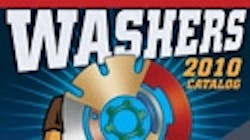EE&T News: August 24, 2010
| Wireless Version Web Version | Dont miss an issue: ADD TO YOUR SAFE SENDER LIST |
Crank up the compressorless A/C
With the worst of the summer heat apparently behind us, one lingering reminder of the experience is the continuing work on more efficient air conditioning schemes. And with back-to-school time comes our September-October print issue. You can find a digital version here:
viewer.zmags.com/publication/3bbdb9ac
As always, send your energy efficiency news to us at [email protected] -- Leland Teschler, Editor Read More
FEATURED CONTENT |
Will your next car have an A/C compressor?
ADVERTISEMENT
What most people think they know about energy efficiency is probably wrong
What takes more energy, making a can out of recycled aluminum or making a bottle out of recycled glass? If you think bottle recycling is the more energy efficient choice, you have a lot of company. You are among the majority of people who have misconceptions about what practices are the most energy efficient. So say researchers who hail from the Earth Institute and Center for Research on Environmental Decisions, Columbia University, Ohio State University, and Carnegie Mellon University. READ MORE Read More
ADVERTISEMENTWireless Sensor Networks – An Introduction to Technologies and Architectures |
Appliances more efficient in some countries than in others
ADVERTISEMENT
Boker's Free 2010 Washer CatalogInnovative LED panels in the limelight
The typical way of creating a light panel with LEDs is to just put some kind of diffusing material in front of the light source. This eliminates the point light source but has the drawback of blocking a lot of the LED light, up to 40%. A start-up manufacturer in Israel called Oree Inc. has devised an LED light panel that gets away from the blocking problems of diffusion material. The details of its technique are a bit sketchy, but basically it embeds LED chips in a super-thin plastic that functions as a light guide. READ MORE Read More
Energy shorts
That candle is really a CFL
Consumers don't believe corporations' assertions about "going green"
Now lighting has a sustainability certification
The energy-efficient mainframe
EnergyStar ratings for homes?
Solar and wind-gnerated power balance out, at least in some places Read More
NEW PRODUCTS |
Energy-saving seal
LATEST ISSUE | |
| Energy Efficiency & Technology magazine is FREE to qualified subscribers. Subscribe now! | |
FEEDBACK | |
| IF YOU HAVE QUESTIONS, Comments or feedback about an item covered in Energy Efficiency & Technology, contact our online editorial staff | |
| You are subscribed to this newsletter as #email# For questions concerning delivery of this newsletter, please contact our Customer Service Department at: |

